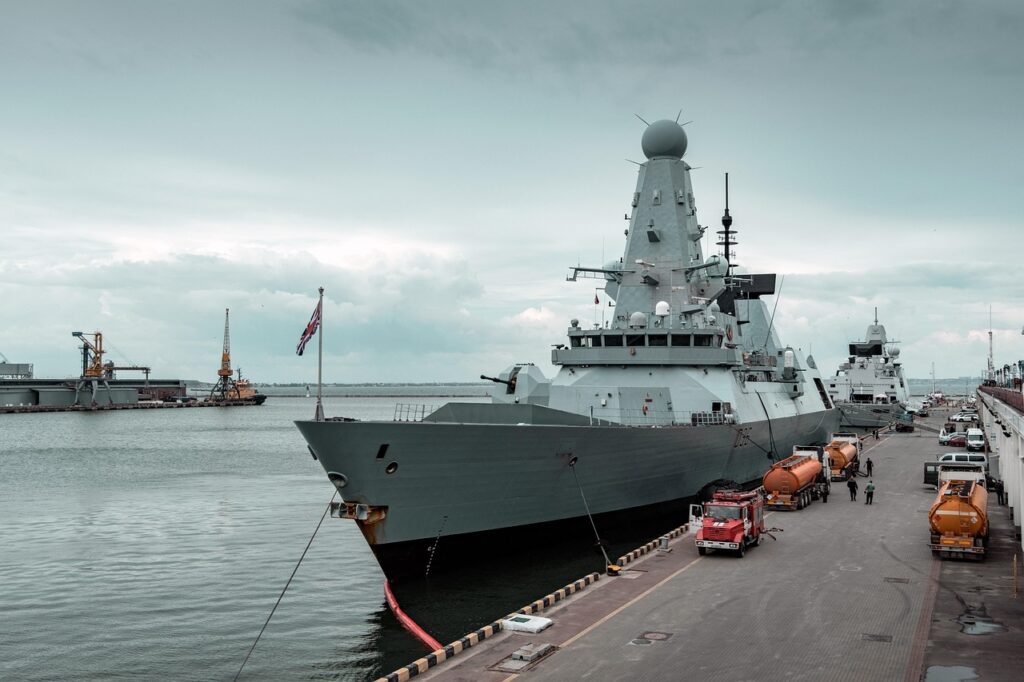U.S. Secretary of Defense Pete Hegseth has called for a significant strengthening of NATO’s military capabilities. During his visit to Brussels, Hegseth emphasized that the alliance must prioritize defense readiness over diplomatic efforts to maintain its influence in global security. This bold statement marks a clear shift in the focus of NATO, especially in light of the increasing challenges posed by global security threats.
Hegseth’s Vision for NATO’s Future
Hegseth, who has made defense and military preparedness a cornerstone of his leadership, articulated his views ahead of his first official meeting with defense ministers from over 50 countries. He took to X (formerly Twitter) to underline that NATO must significantly enhance its military strength if it is to maintain its role as a key player in global security. According to Hegseth, NATO’s ability to defend its members and counter emerging threats, such as those posed by Russia and China, is paramount.
The Secretary of Defense’s stance is clear: while diplomacy remains essential, NATO’s primary focus must now be on strengthening its defense capabilities to deter aggression and project power globally. His remarks reflect an ongoing shift in global defense priorities, one that emphasizes military readiness and strategic deterrence.
Discussions with NATO and Ukraine
During his visit, Hegseth participated in discussions on NATO’s support for Ukraine, particularly as the country continues to grapple with Russia’s ongoing invasion. The United States has stepped back somewhat from its previously prominent role in Ukraine’s defense under the Trump administration. However, NATO has continued to provide critical support to Ukraine, now under the leadership of the United Kingdom, as the alliance looks to bolster Ukraine’s defense.
On Thursday, Hegseth is scheduled to meet with defense ministers from all 31 NATO countries. This meeting is expected to center on bolstering NATO’s collective defense posture in the face of evolving global challenges. Additionally, Hegseth will hold talks with Ukrainian Defense Minister Rustem Umerov at the NATO-Ukraine Council, an important step in enhancing cooperation between NATO and Ukraine as the conflict with Russia rages on.
Europe’s Responsibility in Defense
A significant part of Hegseth’s visit included a stop at U.S. military bases in Germany. During this visit, he took the opportunity to urge European NATO members to take more responsibility for their own security. This call echoes a stance previously pushed by former U.S. President Donald Trump, who advocated for European nations to allocate 5% of their GDP toward defense spending.
Hegseth’s message is clear: the U.S. will continue to play a key role in NATO, but Europe must step up its defense contributions. He stressed that European NATO members must not only increase their defense budgets but also ensure that their forces are properly equipped to handle emerging threats on their own soil. This shift in responsibility is seen as a necessary step to ensure NATO’s long-term viability, especially as the global security landscape evolves.
U.S. Troop Presence in Europe
One of the major concerns surrounding Hegseth’s visit was the future of U.S. military presence in Europe. With a large number of U.S. troops stationed across the continent—about 100,000—there have been discussions regarding potential changes to this deployment. While Hegseth acknowledged that the U.S. is reassessing its global military presence, he firmly dismissed any immediate plans to reduce U.S. troop numbers in Europe.
He assured European allies that no cuts were planned for U.S. forces stationed in the region. However, he made it clear that the U.S. is shifting its focus towards the Indo-Pacific region, particularly in relation to the growing threat posed by China. This reassessment means that U.S. military resources may increasingly be allocated to counterbalance China’s rising influence, with Europe continuing to bear more of the responsibility for its own defense.
The Growing Challenge of Global Defense
Hegseth’s visit to Brussels and his discussions on NATO’s future reflect a broader trend in global defense policy. NATO is facing mounting pressure to adapt to a rapidly changing security environment, where the rise of China and Russia’s aggressive actions in Ukraine are reshaping the global balance of power. Hegseth’s call for NATO to prioritize defense capabilities is a direct response to these threats, highlighting the need for the alliance to modernize its forces and ensure that they are prepared to confront the challenges of the future.
NATO’s future success will depend on its ability to adapt to these new realities. Hegseth’s push for a stronger NATO could signal a shift toward more aggressive military preparations, but it also raises questions about how member states will respond. Will European nations increase their defense spending as Hegseth has urged? Will NATO members agree to a more robust military framework that can meet the challenges of an increasingly unpredictable world?
NATO’s Response to Hegseth’s Vision
As NATO members prepare for upcoming meetings and strategy discussions, Hegseth’s vision for the alliance’s future will likely be a central point of debate. The question remains whether NATO will embrace the changes Hegseth advocates, or whether there will be resistance from some member states, especially those who have historically relied on U.S. military support.
In the coming months, NATO’s response to Hegseth’s proposals will shape the alliance’s future direction. As global security threats continue to evolve, NATO must decide whether it will strengthen its defense capabilities in line with Hegseth’s vision or continue to focus on diplomatic efforts. The decisions made now will impact not only the future of NATO but also the broader geopolitical landscape.
For more details on this story or other business news, visit Financial Mirror.
